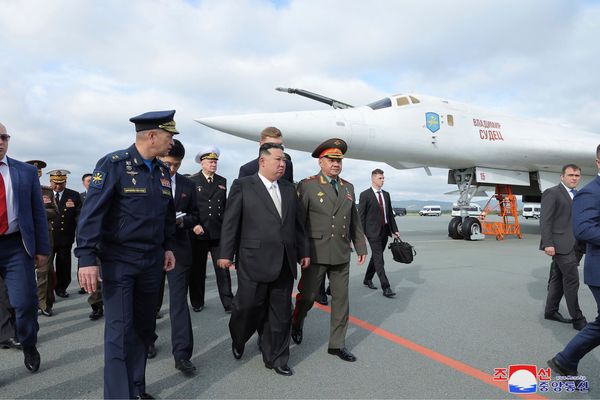
North Korea’s state media has recently reported that the country successfully used its new reconnaissance satellite to conduct surveillance on the White House and the Pentagon. According to the Korean Central News Agency, a detailed report was prepared for North Korean leader Kim Jong Un, outlining the satellite’s intelligence operations from November 25 to November 28.
The satellite, which is being fine-tuned by North Korea’s National Aerospace Technology Administration, has also captured images of other significant locations. These include Rome, Italy, as well as the Anderson Air Force Base in Guam. However, the focus remains on the images of the Norfolk Naval Station, the Newport News Dockyard, an airfield in Virginia, and crucial national landmarks such as the White House and the Pentagon.
The report highlights the detection of four U.S. Navy nuclear carriers and one British aircraft carrier in the photographs taken from the Norfolk Naval Station and the Newport News Dockyard. North Korean leader Kim Jong Un expressed great satisfaction with the successful preparations for the operation of the reconnaissance satellite, known as ‘Malligyong-1’, and commended the National Aerospace Technology Administration once again.
This recent development follows North Korea’s launch of the satellite into orbit from the Sohae Satellite Launching Ground earlier this month. The country had announced its plans to launch its first-ever military spy satellite capable of monitoring the United States back in May. However, the initial attempt on May 31 and a subsequent attempt on August 24 both failed.
North Korea has expressed its intent to utilize the satellite to monitor what it deems as “dangerous” actions by the United States. While this surveillance claim is concerning, it is essential for international security to address this issue and prevent further escalation.
As tensions continue to build, it is crucial for nations to work together to maintain diplomatic relations and ensure global stability. The surveillance capabilities of North Korea’s new satellite highlight the need for collaborative efforts in addressing national security concerns.




